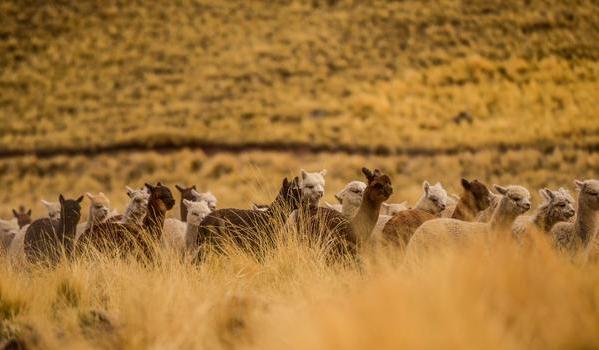
Selvedge Talks to Study 34
On the 7th of December, our team brings a curated collection of 55 merchants and makers to Mary Ward House in central London. Our exhibitors sell a range of rare vintage fabrics, covetable haberdashery and skilfully handmade textile treasures. The fair offers the perfect opportunity to meet makers, catch up with old friends, and pick up that special something in preparation for the festive season.
In the lead up to our annual Winter Fair Selvedge talks to some of the artisans that will be joining us. Today, we catch up with Eleanor O’Neill from STUDY 34.
For tickets to the Winter Fair, please click here.

Tell us a little bit about who you are and what you do.
My name is Eleanor O’Neill and I am a knitwear designer. I run a knitwear label called STUDY 34 and I am also the knitwear lecturer on the Fashion BA at Northumbria University.
I have loved knitwear from the very first day I walked into the knit room at university. I began my degree as a textile student but quickly moved to fashion knitwear because I felt, as it encompassed both fabric development and silhouette, it was the most experimental discipline and I still believe that today. In fact, with the increasing popularity of 3D printing, zero waste manufacture and making to order; I think knitwear is set for a huge resurgence in popularity.
How do you work?
I work from my studio in the north of England where I used to make all of my garments on my hand operated domestic knitting machines and linkers. Now I manufacture my garments in Peru, where I try to visit the yarn spinners and knitwear manufactures, who are both based in Arequipa, once a year (I do still manufacture the STUDY 34 Alpaca Scarves in Newcastle, using yarn from the same spinners, Inca Tops, who provide the yarn for all my pieces). I design in my Newcastle studio and send my drawings and measurements off to Teresa at Incalpaca, who makes up a sample for me and either sends it to me in the UK or we look at it together when I’m out there visiting.
What’s your background?
I grew up and was educated in the north of England and the south of France. I did an art foundation in Newcastle after a year of travelling in South America and went to study fashion knitwear at Nottingham Trent University in 2009. I’ve worked for the global supply chain manager Li & Fung, international luxury brand Hugo Boss and Italian knitwear label Stefanel and in 2015 I set up my label STUDY 34 out of my studio in Newcastle.

How has your practice change over time?
I began STUDY 34 by making all the garments myself in my studio, using dead stock luxury yarns sourced from an agent outside Manchester. It was a really creative way of working but ultimately not scalable as I never knew how much I would get and when. In 2017 I won The Prince’s Trust ‘Tomorrow’s Business Award’ which enabled me to move my production to a British factory and using dead stock yarns in this environment was much more challenging (I have many horror stories!). Towards the end of 2017 I was invited out to Peru, along with a few other small creative businesses, to visit their manufacturers and learn about Peru’s two main fibres - Alpaca and Pima Cotton - and how they could be used in garments. I found the industry over there so open to small businesses, inviting us all to their factories to see how they worked and being able to talk to the spinners and sewers etc. They were much more approachable compared to the British Textile industry, which I found to be quite opaque in comparison.
So, the main changes in my practice have been on the manufacturing side. I love being able to manufacture things and greatly enjoy making the STUDY 34 alpaca scarves in my studio, but for the finer gauge styles it is sadly not possible for me to make them personally. I am working on some options as we speak to bring a little more creativity back to the studio…
 What is it about your craft that captured your attention?
What is it about your craft that captured your attention?
What I love most about knitwear is the ability to create something 3 dimensional from a single thread of yarn. Through fibre selection, yarn fabrication, gauge, tension, colour, stitch structure, shaping, washing etc you ca create something entirely unique.
What is your favourite part of the process of sourcing/ making/ doing what you do?
The manufacturing part of the supply chain – I love being able to see and understand all of the different processes that go into making a garment. In truth, I am much more interested in this than the final outcome. And truly understanding how each phase affects the other, is how you become a better designer I think.
For tickets to the Winter Fair, please click here. 2 for 1 offer with code WINTERFAIR19.
